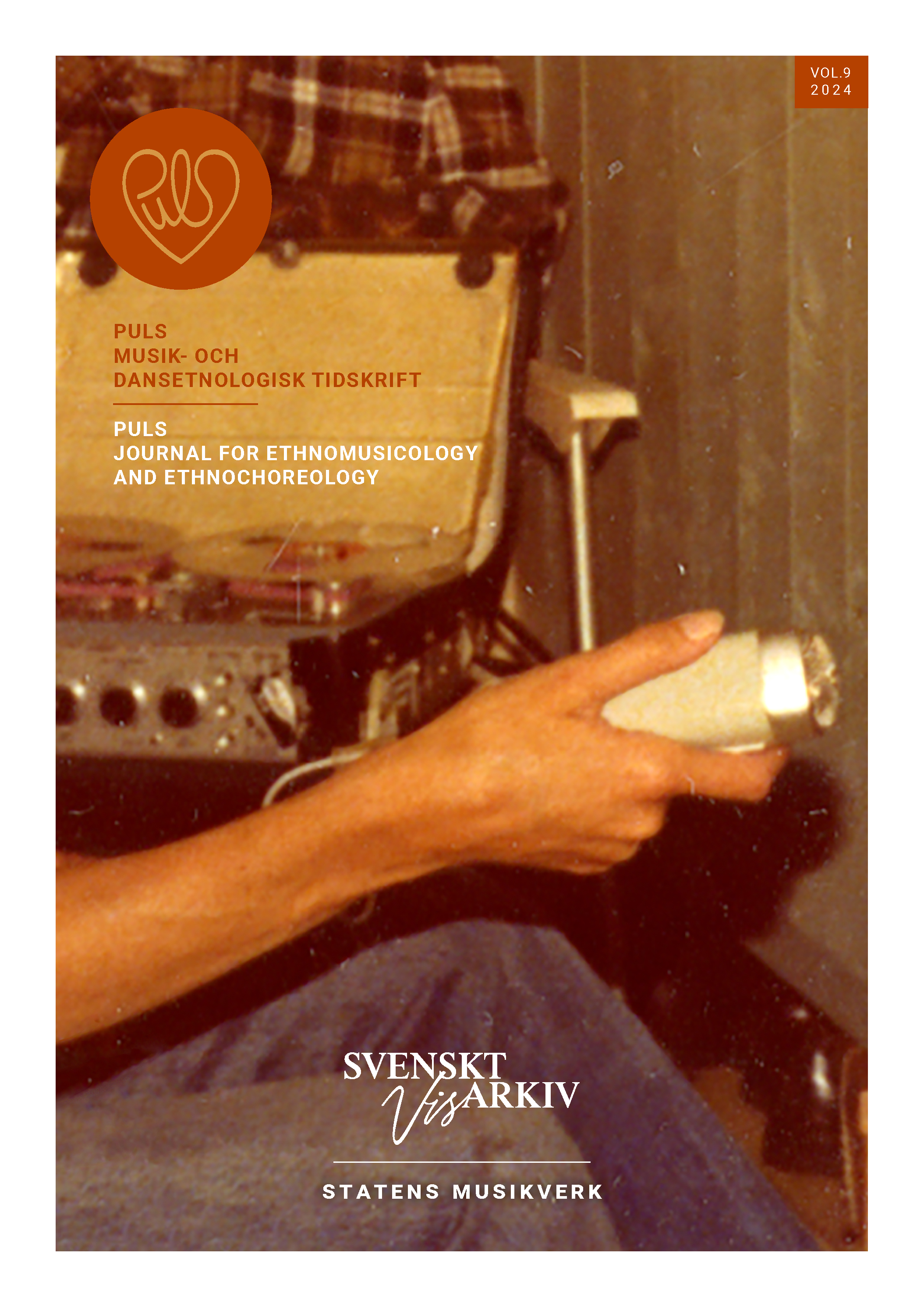Tarab and transtopias
A postmigrant analysis of Arab music making and teaching in southern Sweden
DOI:
https://doi.org/10.62779/puls.9.2024.23740Nyckelord:
Arab musicians , Arab music, tarab , music making, mobility , cultural change, postmigration, transtopia, SwedenAbstract
Together with a growing number of migrants of Arab descent, Arab music, and tarab culture has grown in importance in the Swedish musical landscape. What is the contribution of Arab migrant musicians, and their music practice, to changes in the musical landscape in southern Sweden from a postmigrant perspective? Postmigrant music making includes processes of building connections and relations between Arab migrant, other migrants, and Swedish non-migrant musicians. We employ the concept of transtopia (Yildiz 2019; West 2019) in the analysis of Arab migrant musicians’ experiences of music-making, performing and teaching Arab music in southern Sweden, with the aim of disentangling how music-making forms spaces for innovation, translation, negotiations of representation, belonging, identity, cultural change and transformation within the context of increasing diversity in society. This study is based on participant observation, audio-visual recordings, fieldnotes and semistructured interviews during fieldwork within the local cultural production sector in the southern Swedish province of Skåne and particularly in the city of Malmö. The interviews were conducted with Arabic-speaking musicians who sing and play classical tarab music in performative and educational settings. The article contributes to a renewed scholarly interest in migrants’ music and to the ongoing debates on the role of migrant artists in cultural change in postmigrant societies.
Downloads
Publicerad
Referera så här
Nummer
Sektion
Licens

Det här verket är licensierat under en Creative Commons Erkännande 4.0 Internationell-licens.



